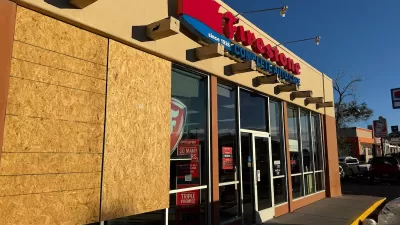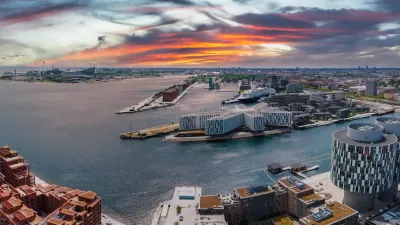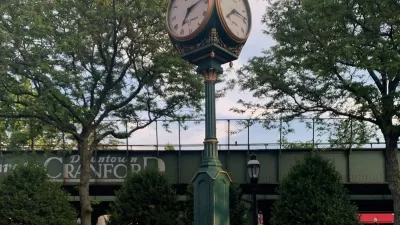Aleppo, one of the oldest continually inhabited cities in the world, is undergoing a conservation project that includes the restoration of hundreds of houses, a new park, and rebuilding city streets and services.
The method behind the conservation, pioneered by a German NGO and the Aga Khan Trust for Culture in concert with the Syrian government, is "the culmination of a major philosophical shift among preservationists in the region."
Those involved are seeking to reverse a fifty year history of restoring only major artifacts, destroying surrounding neighborhoods if necessary and driving away poor residents through gentrification. To do this, planners carved large avenues through neighborhoods that were seen as cramped and backward in an effort to funnel more tourists toward antiquated attractions.
"What makes the new project such an auspicious model for the region, though, is its clear grasp of how architecture can both shape and define relationships among social groups. The road surrounding the Citadel, which choked it with cars and exhaust fumes, has been replaced by a pedestrian walkway bordered by the newly landscaped moat on one side and scattered historical buildings on the other."
FULL STORY: Preserving Heritage, and The Fabric of Life In Syria

Manufactured Crisis: Losing the Nation’s Largest Source of Unsubsidized Affordable Housing
Manufactured housing communities have long been an affordable housing option for millions of people living in the U.S., but that affordability is disappearing rapidly. How did we get here?

Americans May Be Stuck — But Why?
Americans are moving a lot less than they once did, and that is a problem. While Yoni Applebaum, in his highly-publicized article Stuck, gets the reasons badly wrong, it's still important to ask: why are we moving so much less than before?

Using Old Oil and Gas Wells for Green Energy Storage
Penn State researchers have found that repurposing abandoned oil and gas wells for geothermal-assisted compressed-air energy storage can boost efficiency, reduce environmental risks, and support clean energy and job transitions.

Greening Oakland’s School Grounds
With help from community partners like the Trust for Public Land, Oakland Unified School District is turning barren, asphalt-covered schoolyards into vibrant, green spaces that support outdoor learning, play, and student well-being.

California Governor Suspends CEQA Reviews for Utilities in Fire Areas
Utility restoration efforts in areas affected by the January wildfires in Los Angeles will be exempt from environmental regulations to speed up the rebuilding of essential infrastructure.

Native American Communities Prepare to Lead on Environmental Stewardship
In the face of federal threats to public lands and conservation efforts, indigenous groups continue to model nature-centered conservation efforts.
Urban Design for Planners 1: Software Tools
This six-course series explores essential urban design concepts using open source software and equips planners with the tools they need to participate fully in the urban design process.
Planning for Universal Design
Learn the tools for implementing Universal Design in planning regulations.
Heyer Gruel & Associates PA
City of Moreno Valley
Institute for Housing and Urban Development Studies (IHS)
City of Grandview
Harvard GSD Executive Education
Salt Lake City
NYU Wagner Graduate School of Public Service
City of Cambridge, Maryland





























